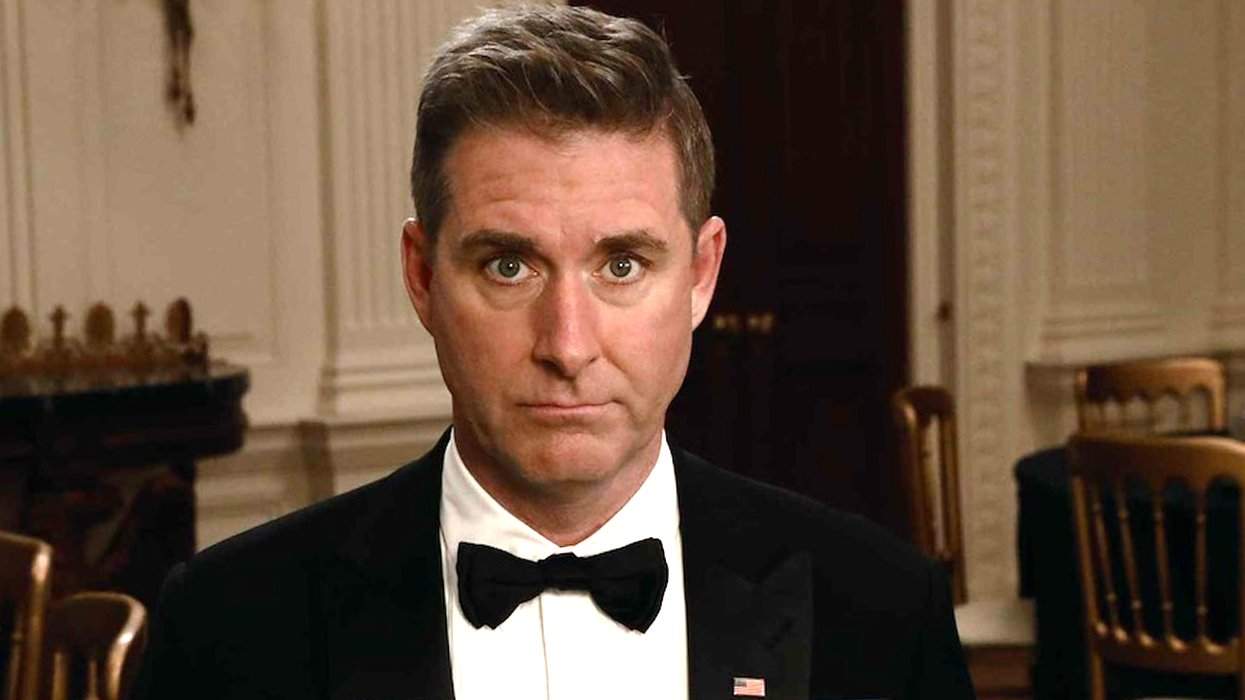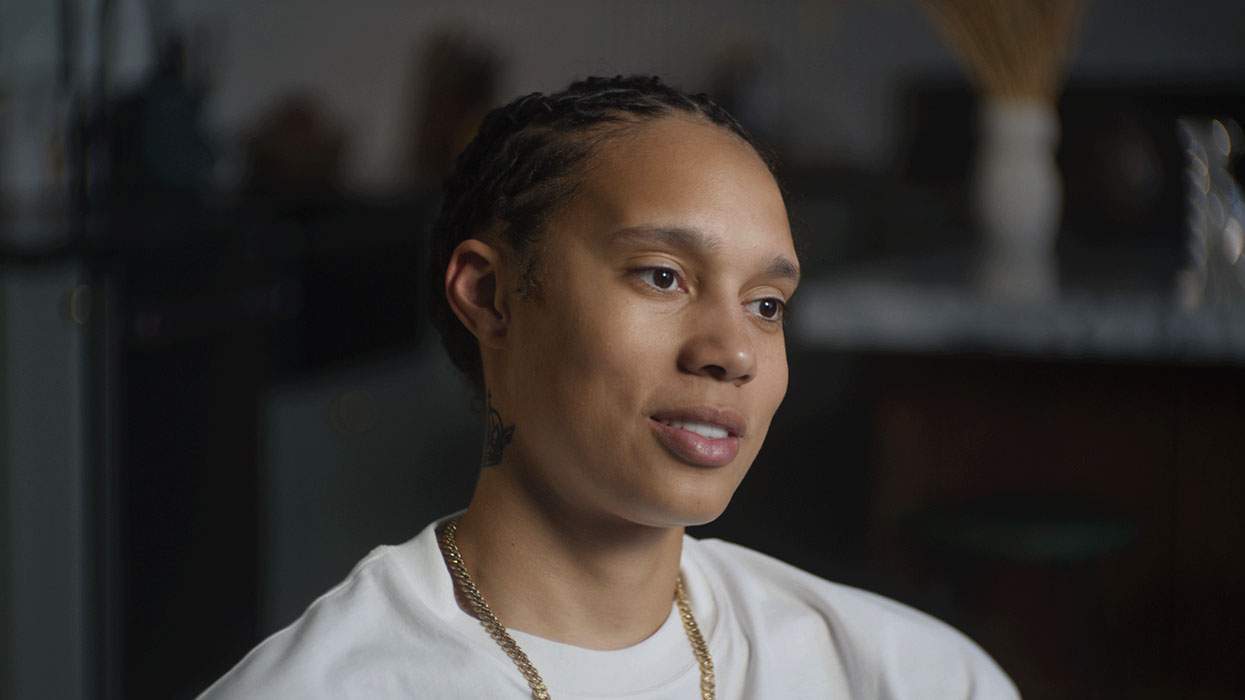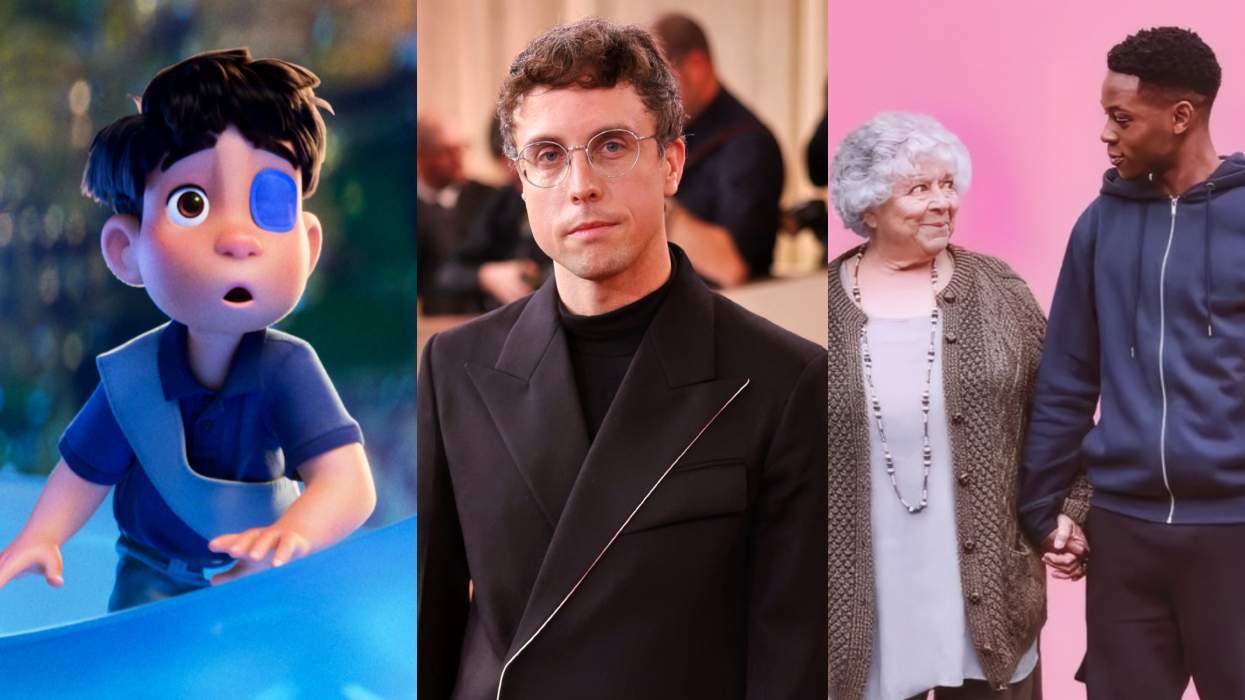When Paul Fitzgerald stepped into the role of President Perry Morgan in Netflix’s The Residence, which was history-making since it was the first out gay president of the United States in a major series, it wasn’t just a bold move for entertainment. It was a deeply personal act of representation.
For Fitzgerald, who is bisexual, portraying a queer character in a position of ultimate authority offered a chance to make visible a part of himself that, despite decades in the industry, still rarely sees the spotlight.
“I love the affinity that allows me with gay men, with trans people, we’re all in that queer family,” Fitzgerald recently told The Advocate. “But anyone who’s in the bi space knows that you don’t get any points from anyone. It’s not advantageous because people have all sorts of ideas about it.”
Fitzgerald, born in New York and raised in Virginia, is no stranger to performing complex, layered roles. He’s a Northwestern grad and received his master’s degree from the Old Globe/University of San Diego Drama School. His career spans Broadway (Noises Off), acclaimed indie films (Forgiven), major motion pictures (The Secret Life of Walter Mitty, Arbitrage, Teenage Mutant Ninja Turtles), and television (Younger, Treme, Veep, and Guiding Light).
But until recently, he hadn’t played a character who so explicitly mirrored his own queerness.
“I’ve been out as bi since 2011,” he said, referencing his appearance on the cover of Bi-Social magazine and participation in the “I Am Visible” campaign. “It was such a relief to finally be honest about that. Not only because of how I felt internally, but because I didn’t have to keep navigating that space between what’s assumed and what’s true.”
Assumptions, it turns out, are at the heart of many of Fitzgerald’s professional and personal reckonings. He’s often perceived as straight, especially given his long-term relationship with his current partner, and wife, Chelsea Fitzgerald. “People hear I have a partner who’s a woman, and they file that away. That’s it. But I’ve dated men. I’ve loved men. That’s part of me too,” he said. “Being bi means I’ve had to live with that in-between space. And we’re not really taught how to see or respect that.”
While Fitzgerald has been building a career and a life with full awareness of who he is, the industry hasn’t always known what to do with that.
“Sometimes I feel like we’re just now beginning to understand that queer identities don’t always look like we expect,” he noted. “I was always out to friends and family, but publicly I didn’t talk about it much, and it's not because I was ashamed but because there was this fear that being bi was seen as somehow less real. Or temporary. Or opportunistic.”
Now in his 50s, Fitzgerald speaks with clarity about the confusion people might perceive about him. “Bisexuality challenges binaries,” he said. “And a lot of people are uncomfortable with that. But I think it’s important to live the complexity.”
That complexity is what makes his portrayal of President Morgan so compelling. The president in The Residence is a strong, principled leader and also a man deeply in love with his first gentleman, played by Barrett Foa. Their relationship is central not only to the plot but to the emotional heart of the show.
“It’s the first time I’ve really played a character whose queerness is essential, not incidental. That matters,” Fitzgerald reflected. “It’s not about trauma or pain. It’s about love, service, and identity. And that’s revolutionary, in its way.”
Asked if he’s felt any pushback for being a bisexual man playing a gay president, Fitzgerald shrugged. “Look, I’ve heard it all,” he said. “But the point of acting is empathy, is it not? And the point of visibility is to open doors. If someone sees me in this role and it makes them feel a little less alone, then that’s worth everything.”
Fitzgerald also reflected on how queerness has shifted from the margins toward the mainstream, and how much further we still have to go.
“There are so many kinds of queer experiences,” he said. “What I love about the word ‘queer’ is that it makes room for all of us. The lesbians, the gay men, the trans folks, the nonbinary people, the questioning people, the bi people like me. We’re all there. But we have to make space for the full range. Otherwise, we’re just replicating the same systems that pushed us out in the first place.”
With The Residence, Fitzgerald is no longer in the wings. He’s center stage as a visible, vibrant, and unequivocally bi man. And for bisexual people watching, that visibility can feel like an invitation to exhale.
“Being bi doesn’t mean I’m undecided,” he said, smiling. “It means I’m whole.”
















Charlie Kirk DID say stoning gay people was the 'perfect law' — and these other heinous quotes
These are some of his worst comments about LGBTQ+ people made by Charlie Kirk.